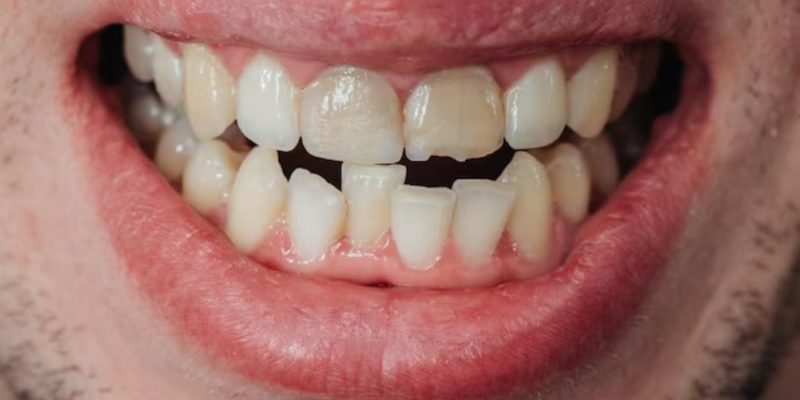- Jaypee Hospital Rd, Goberdhanpur, Sector 128, Noida
- CLINIC : + 91 8076243481
Blog

Details
READING TIME
3 min
CATEGORY
Blog
AUTHOR
Dr. Praveen Kumar
What to Do if You Chip a Tooth
A chipped tooth can happen unexpectedly, whether it's due to biting down on something hard, a sports injury, or even just a fall. While a chipped tooth may seem like a minor issue, it's essential to address it promptly to prevent further damage and maintain your oral health. In this guide, we'll explore what steps you should take if you chip a tooth, from immediate first aid to long-term solutions.
Assess the Damage: The first step after chipping a tooth is to assess the extent of the damage. Minor chips may only affect the enamel, while more significant chips may involve the dentin or even reach the pulp, causing pain and sensitivity. Look for any sharp edges or exposed nerves, as these can be particularly uncomfortable.
Rinse Your Mouth: After assessing the damage, rinse your mouth with warm water to clean the area and help reduce the risk of infection. Gently swish the water around, being careful not to aggravate the chip further.
Manage Pain and Swelling: If you’re experiencing pain or swelling, you can apply a cold compress to the outside of your mouth to help reduce discomfort and inflammation. Over-the-counter pain relievers can also be helpful in managing any pain associated with the chipped tooth.
Save any Broken Pieces: If you’re able to locate any pieces of the chipped tooth, be sure to save them. In some cases, your dentist may be able to bond the fragment back onto the tooth, depending on the size and location of the chip.
Contact Your Dentist: It’s essential to schedule an appointment with your dentist as soon as possible after chipping a tooth. Even if the chip seems minor, your dentist can assess the damage and recommend the best course of action to prevent further complications. They may recommend options such as dental bonding, veneers, or crowns to repair the chip and restore the appearance and function of your tooth.
Avoid Certain Foods and Activities: While waiting to see your dentist, it’s a good idea to avoid hard or sticky foods that could further damage the chipped tooth. You should also be cautious when brushing and flossing around the affected tooth to prevent irritation.
Consider Preventive Measures: Once your chipped tooth has been repaired, it’s essential to take steps to prevent future damage. This may include wearing a mouthguard during sports activities or avoiding habits such as biting on ice or using your teeth as tools.
About Us
Dr. Praveen Kumar is a distinguished professional who holds a Master’s Degree in Dental Surgery from Meerut University, he furthered his education with an MBA in Health Care Administration from FMS, Delhi University. Dr. Kumar is a Diplomat of the World Congress of Oral Implantology and a Fellow of both the Pierre Fauchard Academy and the International College of Dentists. Dr. Kumar is a Diplomat of the World Congress of Oral Implantology and a Fellow of both the Pierre Fauchard Academy and the International College of Dentists.
Information
- Developed By Online B2B Digital Technology © 2024 – All Rights Reserved
